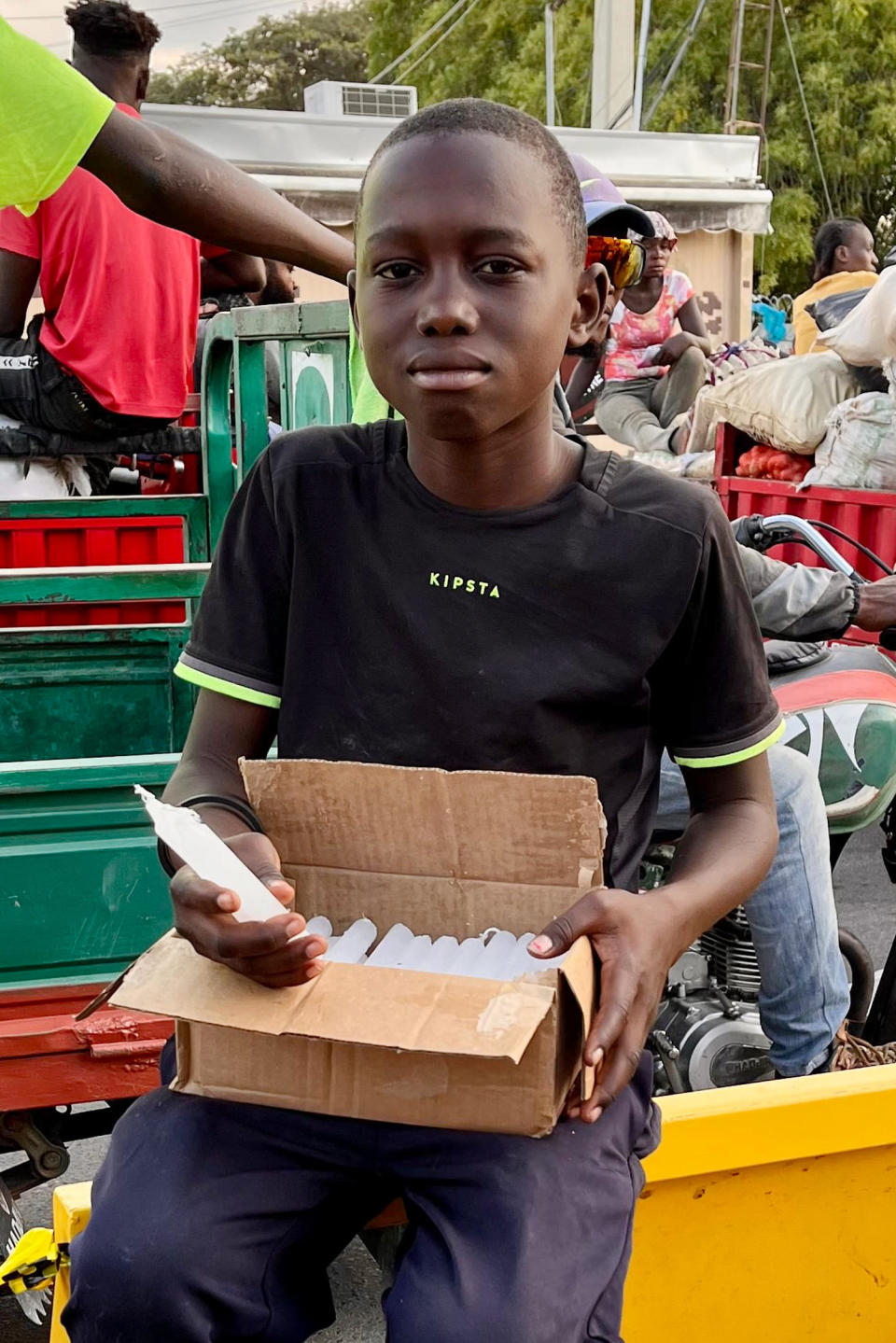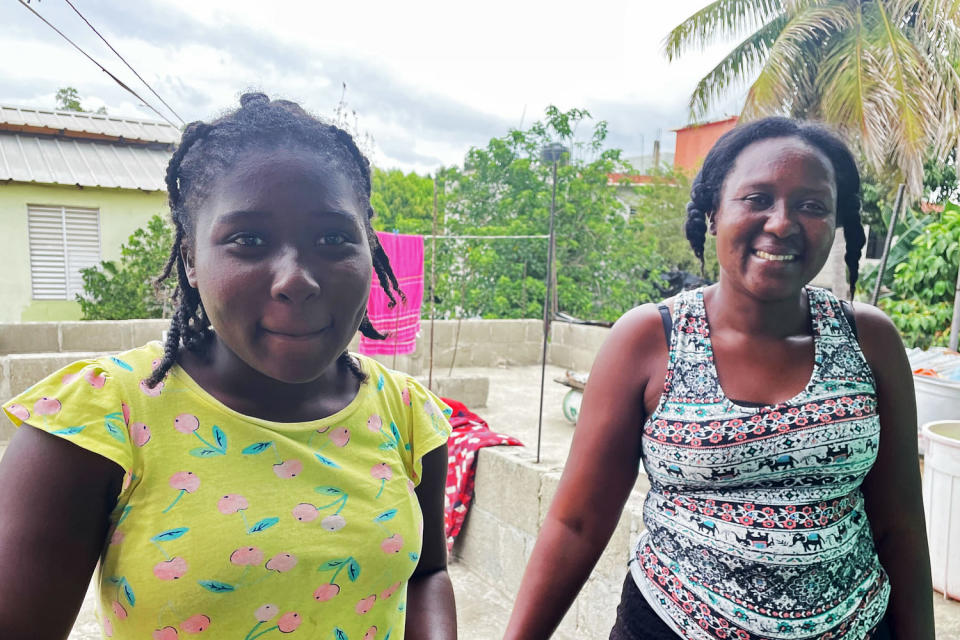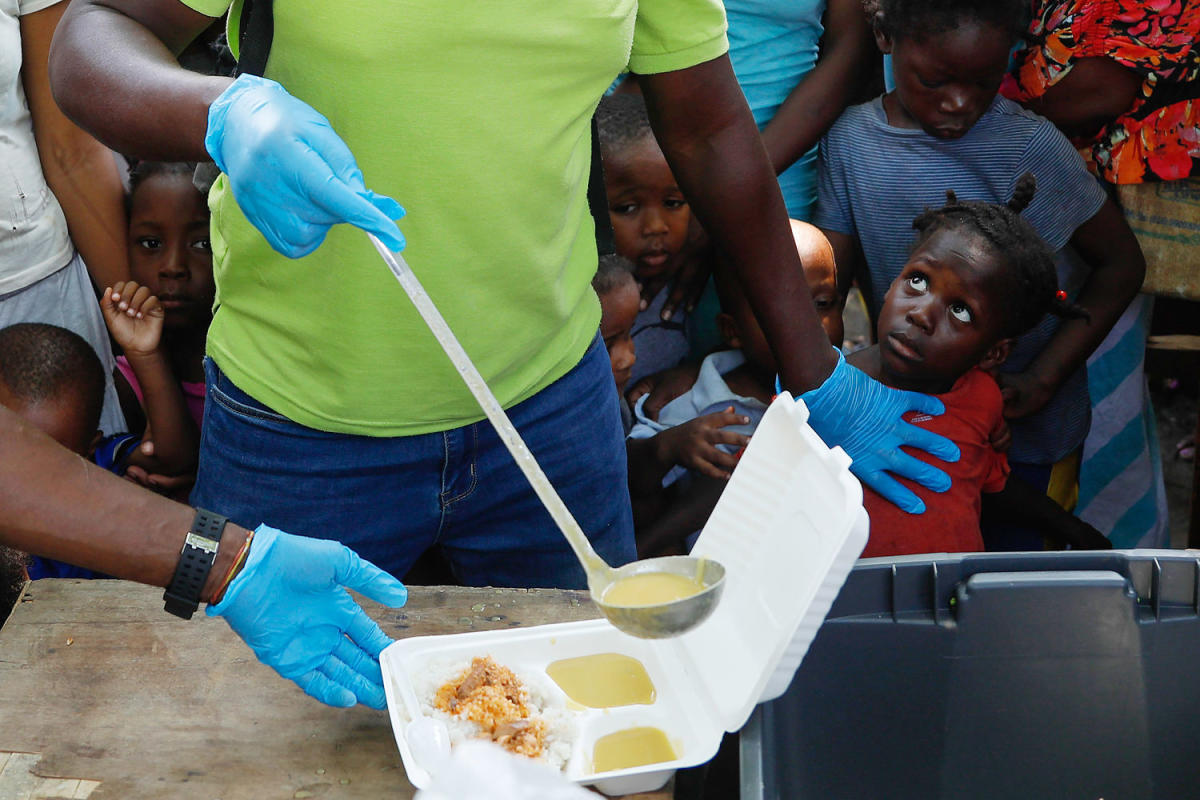“Two candles for 15 pesos,” Kelvin, 13, shouts in creole over and over, as people rush by.
Kelvin said he takes every cent he makes to his single mother in the border town of Ouanaminthe in Haiti. She and Kelvin’s 10-year-old brother and 14-year-old sister are also street vendors.
“I try to go to school Monday through Thursday,” he said. On Fridays, he works all day at the market.

The 13-year-old is one of many Haitian children working in this binational marketplace, selling items in order to support their families. Last year, before the violence escalated, UNICEF estimated that 4 million children needed humanitarian assistance in Haiti.
Between family needs and minimal safety to attend schools throughout Port-au-Prince, many parents are scrambling to ensure that their children not only stay out of direct harm, but also continue their education amid the ongoing strife caused by violent groups.
More than 500,000 children had lost access to education as of 2022, UNICEF said last year. Nearly 1,700 schools have been closed in Port-au-Prince since gang violence increased in April 2022, according to the Ministry of National Education and Vocational Training.
“No child can go to school while bullets are flying in the air, it is dangerous and it should not be,” said Bruno Maes, a UNICEF representative in Haiti. Some schools have turned into shelters for the 377,000 people estimated to have been displaced across the country in recent years, including 15,000 more displaced since February.
Danielle Nesly, 41, and her husband, Pierre Nesly, 47, said they and their two daughters left their home in Port-au-Prince for the northern part of the country, in Cap-Haitien. But the fear of gang violence spreading and the deterioration of the country’s economy prompted them to flee to the Dominican Republic.


It took them two years to get work permits and the required documents to get the children in school. The girls are now 14 and 5. They speak creole at home but are learning Spanish and trying to fit in.
“It was too difficult living there,” Danielle said. “This is still difficult, but better.”
In an effort to control gang violence, the 7 p.m. to 6 a.m. curfew in Port-au-Prince has been extended until Tuesday March 26. Haitian Finance Minister Michel Patricio Boisvert announced said the extension of the curfew has the goal of “re-establishing order and taking measures to control the situation.”
Boisvert has been acting as the highest government official in Haiti since gangs prevented Prime Minister Ariel Henry from landing in Port-au-Prince after a February trip to Kenya.
This article was originally published on NBCNews.com
